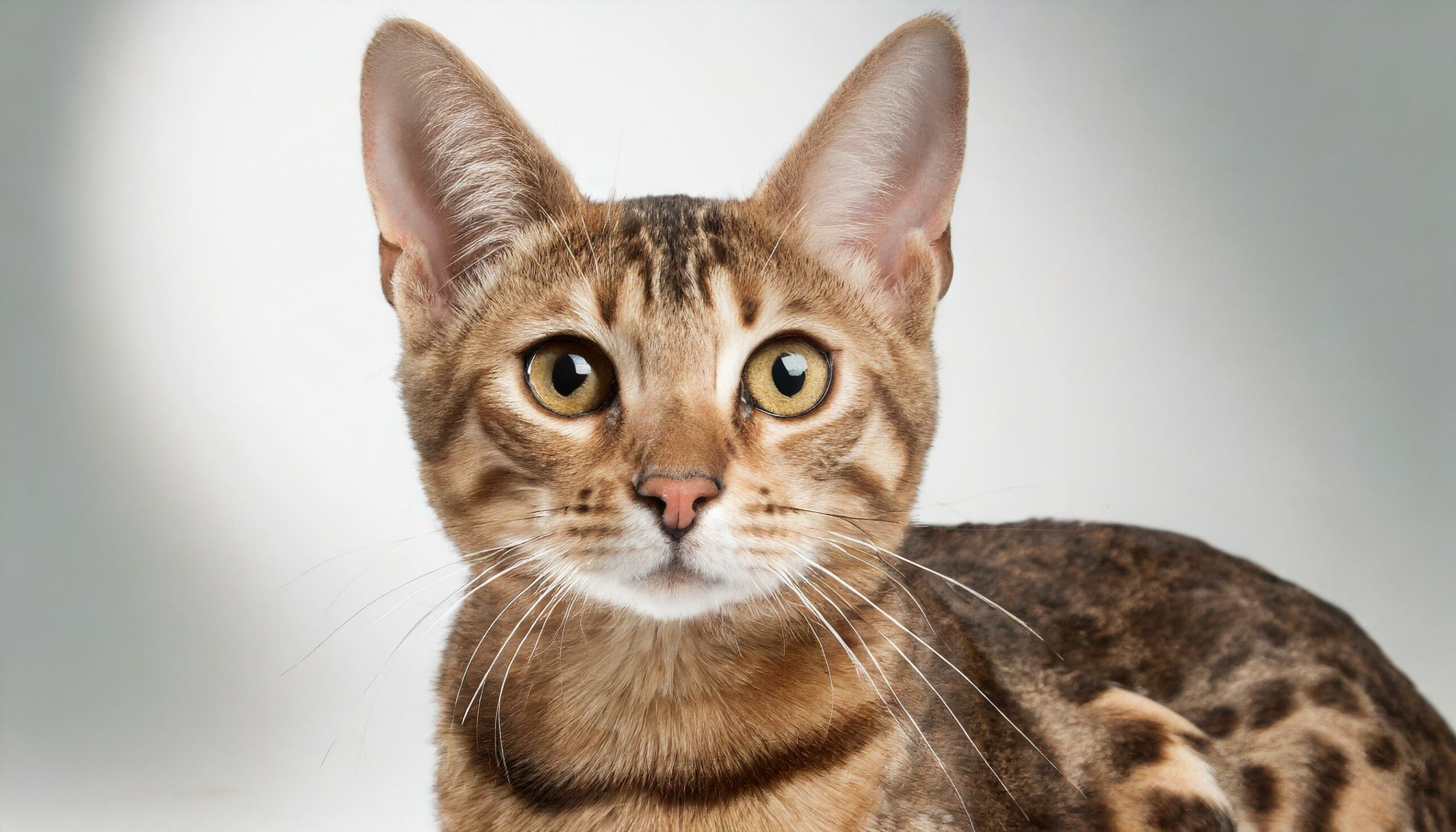The Ocicat, with its striking spotted coat and large, athletic build, may resemble a wild cat, but it’s entirely domestic. This breed is a testament to the allure of wild feline aesthetics combined with the temperament of a friendly, sociable house cat. Developed in the United States in the 1960s, the Ocicat is a relatively new breed that has quickly gained popularity for its exotic appearance and engaging personality. This profile explores the Ocicat’s origins, physical characteristics, temperament, care needs, and its role as an affectionate and playful member of the family.
Origins and History
The Ocicat’s creation was somewhat accidental. Breeder Virginia Daly aimed to produce an Abyssinian-pointed Siamese in 1964, but the result was a litter that included an ivory kitten with gold spots. Named Tonga, this kitten was the first Ocicat, although the breed’s development didn’t begin until Tonga’s unique appearance caught the interest of other breeders. Daly, along with geneticist Clyde Keeler, sought to create a fully domestic cat breed that mimicked the wild cats of the savannah. By crossing Siamese, Abyssinian, and later American Shorthair cats, they refined the Ocicat’s distinctive spotted coat and sturdy physique. Officially recognized by major cat registries in the 1980s, the Ocicat is now celebrated for its wild look and domestic temperament.
Physical Characteristics
The Ocicat is a medium to large breed, with males weighing between 12 to 15 pounds and females slightly smaller. They boast a muscular and solid build, reminiscent of the wild cats they resemble. The breed’s most notable feature is its short, sleek coat marked with spots all over, including on the belly, which is rare among domestic cats. Ocicats come in a variety of colors, including chocolate, cinnamon, blue, lavender, fawn, and silver, each with a contrasting spotted pattern. Their almond-shaped eyes, which can be gold, green, or copper, accentuate their expressive faces, and their large ears contribute to their alert demeanor.
Temperament and Behavior
Ocicats are known for their outgoing, playful, and affectionate nature. They are highly sociable cats that enjoy the company of their human families, often following them around the house and participating in activities. Ocicats are intelligent and curious, making them quick learners who can easily be trained to perform tricks, walk on a leash, or play fetch. They have a vocal nature, often chirping and meowing to communicate with their owners. Despite their wild appearance, Ocicats are warm-hearted and friendly, making them excellent companions for children and other pets.
Care and Health
The Ocicat’s coat is relatively low-maintenance, requiring only occasional brushing to remove loose hairs and distribute natural oils. However, their active and playful nature means they need plenty of mental and physical stimulation to stay happy and healthy. Interactive toys, puzzle feeders, and climbing structures can help keep them engaged. Ocicats are generally healthy, but they can be prone to some genetic health issues, such as hypertrophic cardiomyopathy and liver disease. Regular veterinary check-ups and a balanced diet are essential for maintaining their well-being.
The Ocicat in the Family
The Ocicat is well-suited to families looking for an interactive and engaging pet. Their adaptability and sociable nature make them fit well into various household dynamics, including those with children and other pets. Ocicats thrive on attention and affection, preferring to be in the company of their loved ones rather than being left alone for extended periods. For those enchanted by the Ocicat’s exotic appearance and seeking a devoted, playful companion, this breed offers the perfect blend of wild beauty and domestic charm.
In conclusion, the Ocicat stands as a breed of stunning appearance, dynamic personality, and affectionate character. With its serendipitous origins and status as a cherished companion, the Ocicat continues to captivate cat lovers around the world. For those willing to provide the engagement, care, and love this breed thrives on, the Ocicat offers a rewarding and enriching companionship, serving as a devoted friend and an integral part of the family.
